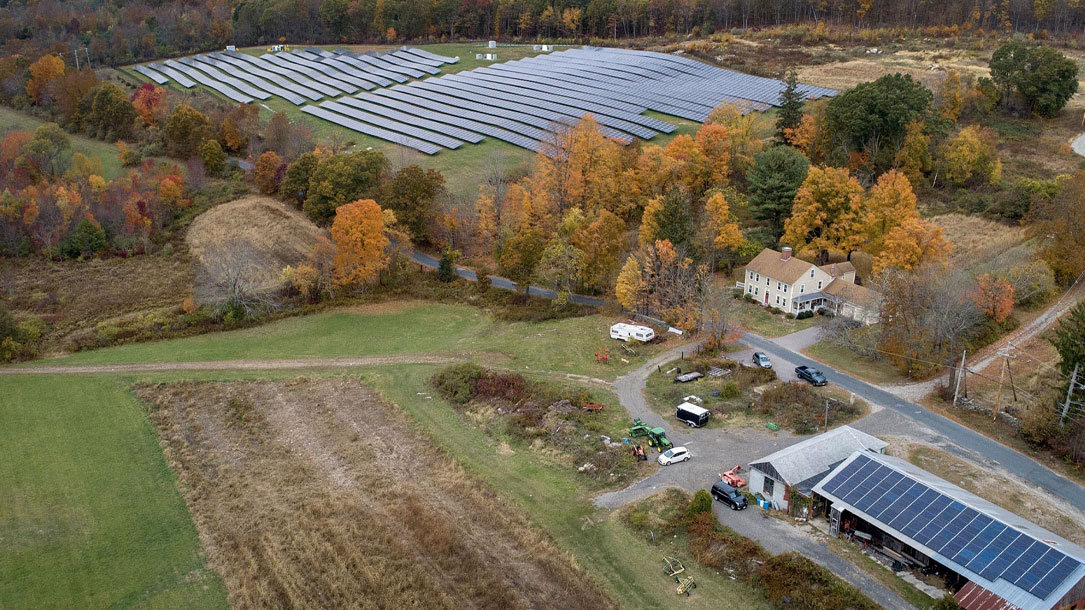
Farms will harvest food and the sun, as Mass. pioneers ‘dual-use’ solar
Paul Knowlton owns 300 acres of land in Grafton, and farms about 50. The farm has been in his family for five generation, ever since Knowlton’s great-great-grandfather settled in the Blackstone Valley in 1872.
These days Knowlton grows pumpkins, squash and corn. Up a gravel road, past the family cemetery, corn stalks are still standing from this year’s crop. “Considering the drought situation, we did fair,” Knowlton says.
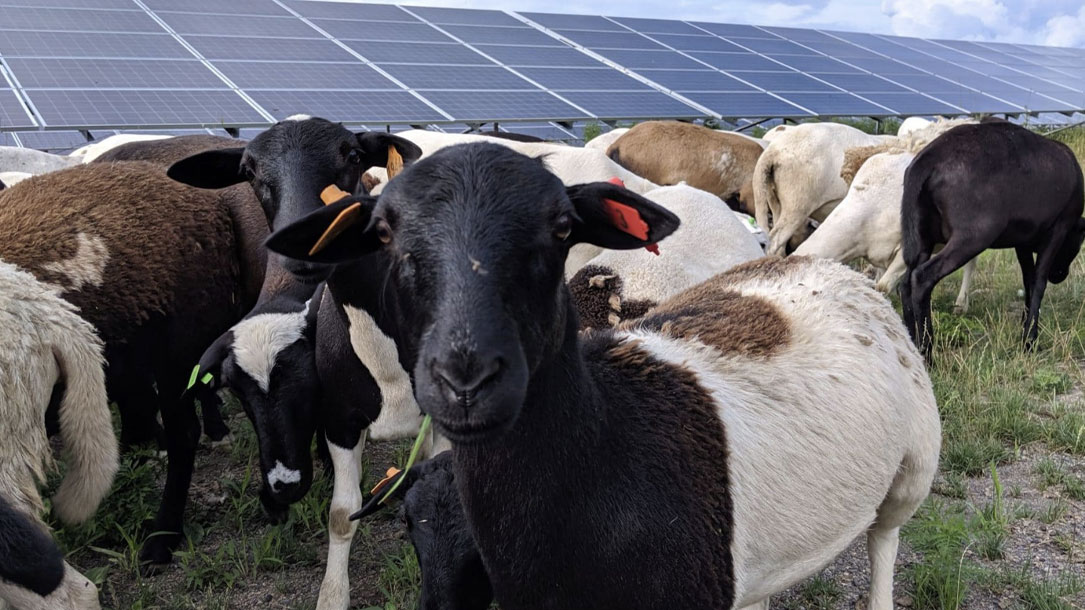
Solar meets sheep (and bees, and more)
Often solar panels sit on former agricultural land, but aren’t what we’d otherwise think of as a farm.
Agrivoltaics aims to change that by hosting PV panels and agriculture on the exact same land. Often, livestock like sheep graze under the solar panels. Sometimes the projects include pollinator habitat as well, which can benefit biodiversity, honey production, or adjacent pollinator-dependent crops. And trials are being done growing shaded crops under raised panels, too…
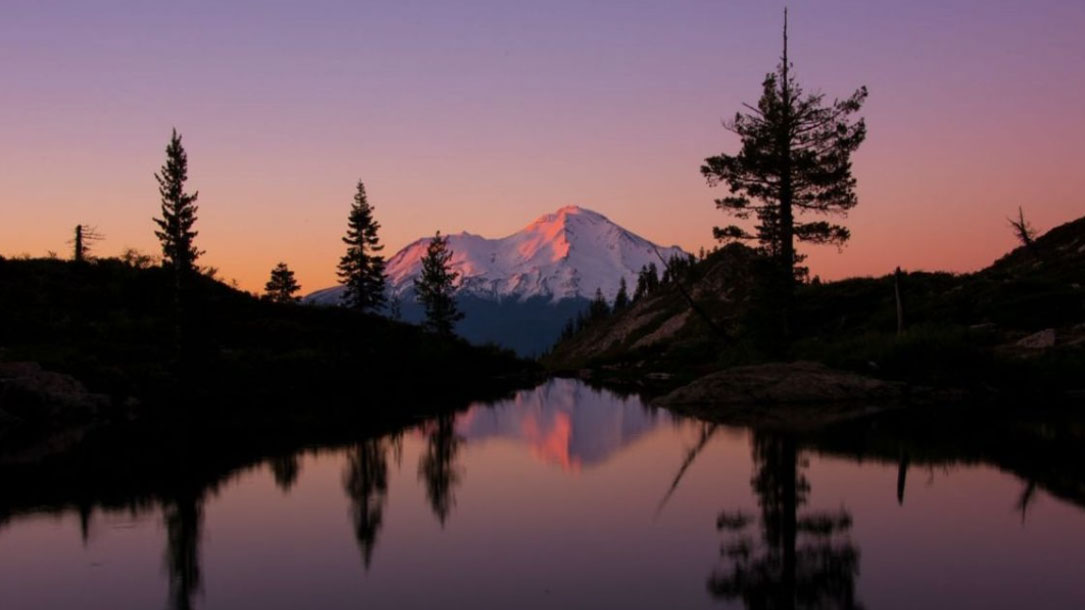
How land trusts and conservancies are achieving climate impact at scale
As the climate crisis grows ever more urgent, land conservationists are taking meaningful action to reduce carbon in the atmosphere and protect natural systems from the unavoidable impacts of a warming planet, according to a new report from the Lincoln Institute of Land Policy.
From the Great Plains of the United States to the high-altitude wetlands of Ecuador, land trusts and conservancies are developing and implementing creative, nature-based strategies to address climate change. In the report From the Ground Up: How Land Trusts and Conservancies are Providing Solutions to Climate Change, Lincoln Institute experts James N. Levitt and Chandni Navalkha document these initiatives through a dozen case examples that demonstrate how conservation organizations can help mitigate and adapt to climate change.
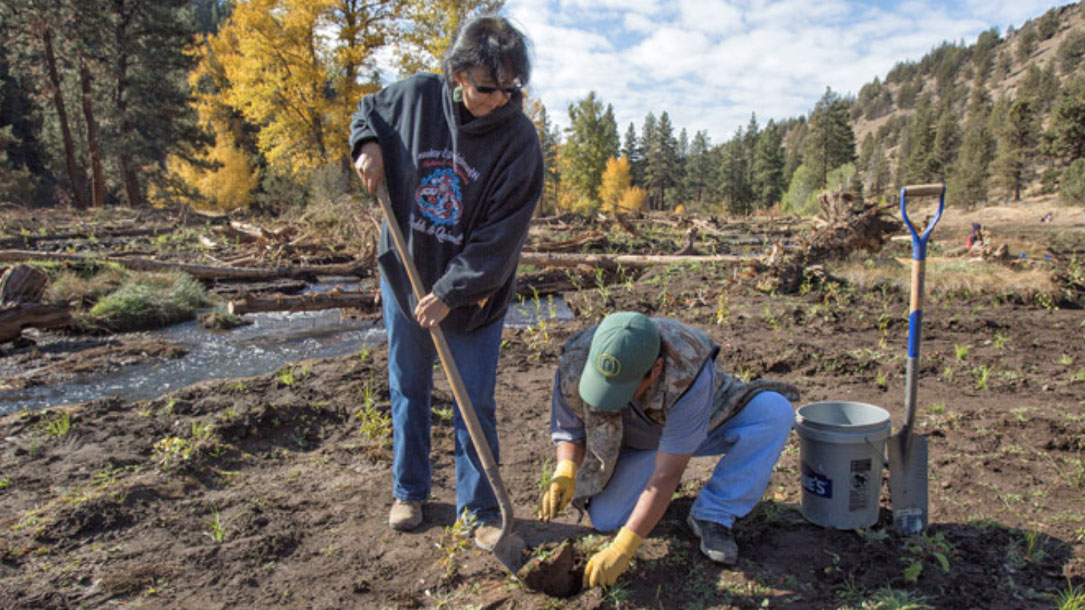
Climate change: Impacts on the communities we love
Central Oregon has some incredible towns, whether it’s the breweries, restaurants, bike paths, or people living there. While we often focus on how climate change is affecting the natural areas around us, it’s also impacting our communities. Learn more about what we can expect from climate change in the communities we love.
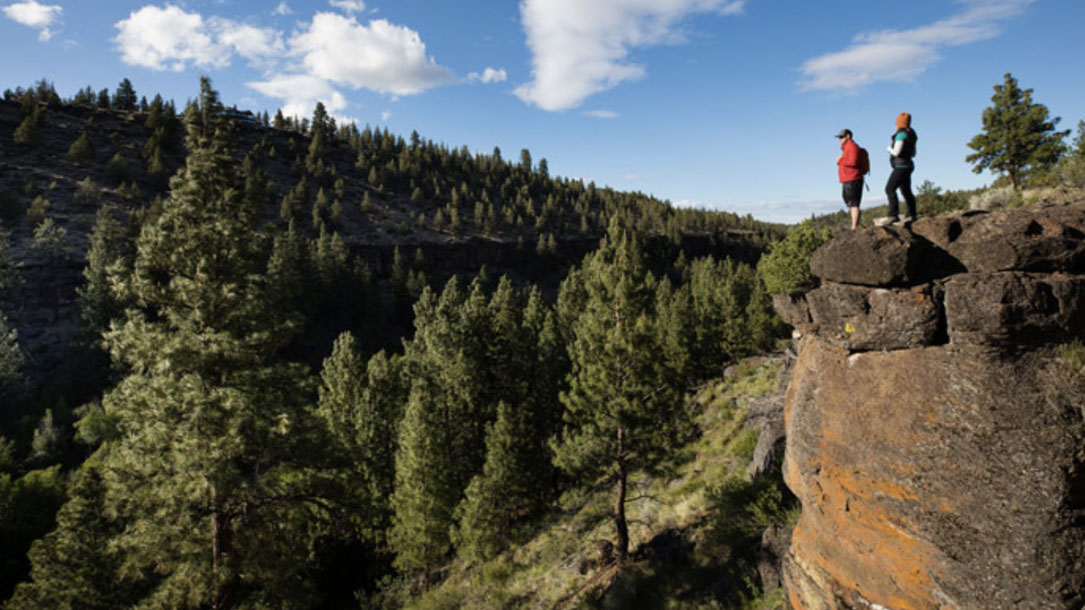
Climate change: Impacts on the places we love
Most people live in Central Oregon because of the immense beauty of its natural places. Our mountains, forests, lakes, streams, and sagebrush steppe habitats are all being altered by climate change. These impacts have begun to affect ecosystems across our region, and the impacts of climate change on animals, plants, and habitats are all interconnected. Learn more about what’s happening now and what we can expect to happen in the future to our loved places.
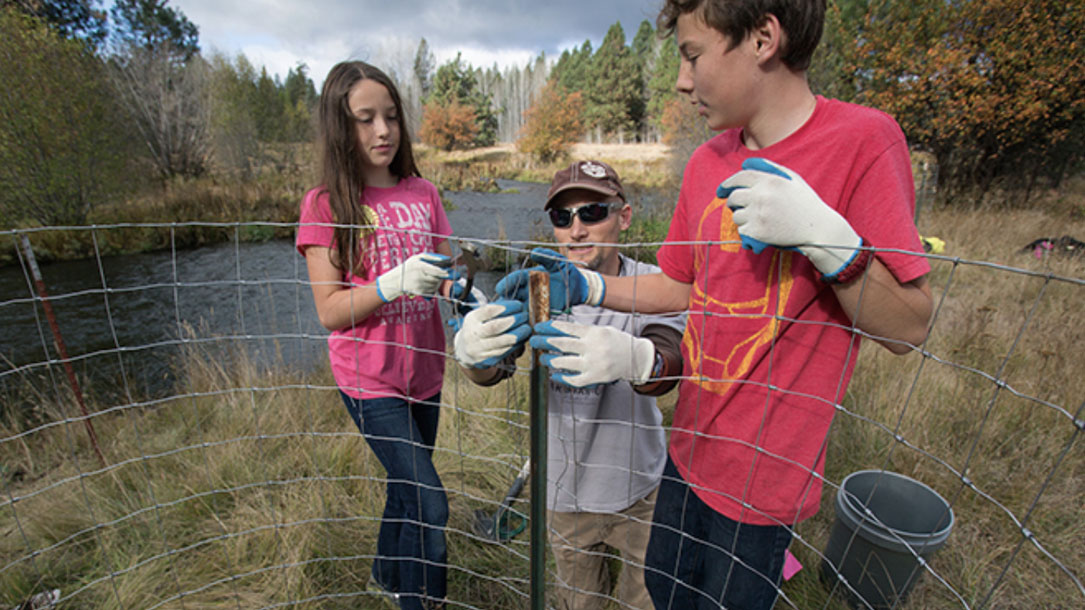
Climate change strategy
Land trusts are talking about climate change more and more in a solution-based, and authentic, manner. Here’s an excerpt from the Deschutes Land Trust website about climate change:
“What does climate change have to do with the Land Trust?
It’s pretty simple: climate change threatens the Land Trust’s core mission of protecting land for wildlife, scenic views, and local communities in perpetuity. In that regard, responding to climate change is like an insurance policy for land trusts.
As a conservation organization, the Land Trust can substantially contribute to mitigating the effects of climate change on local natural areas and can help facilitate the ability of fish and wildlife to adapt to altered landscapes. Learn more about how climate change impacts the places we love and the communities we love…”
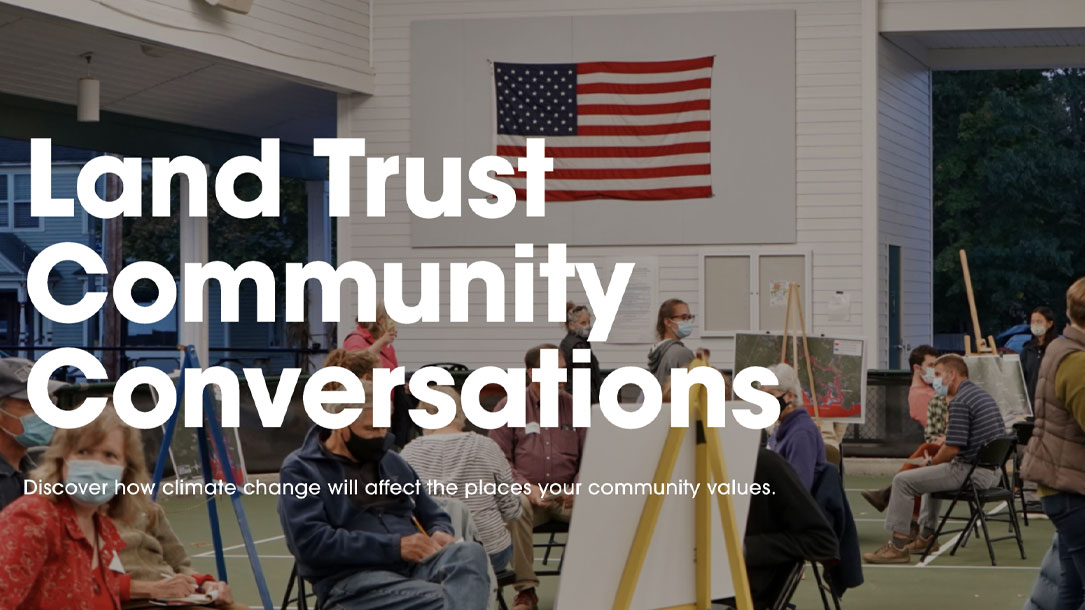
$500 grant: From classrooms to communities
The Climate Initiative is offering $500 to the first 10 land trusts interested in holding community climate change conversations.
They believe youth can — and do — lead, and have developed and tested the curriculum. Check out the videos, articles, and resources — and email Leia if you’d like to learn more or host a program. This could be a great way to partner with area schools, teachers, and your community.
You can find out the details on the website and email Leia Lowery.
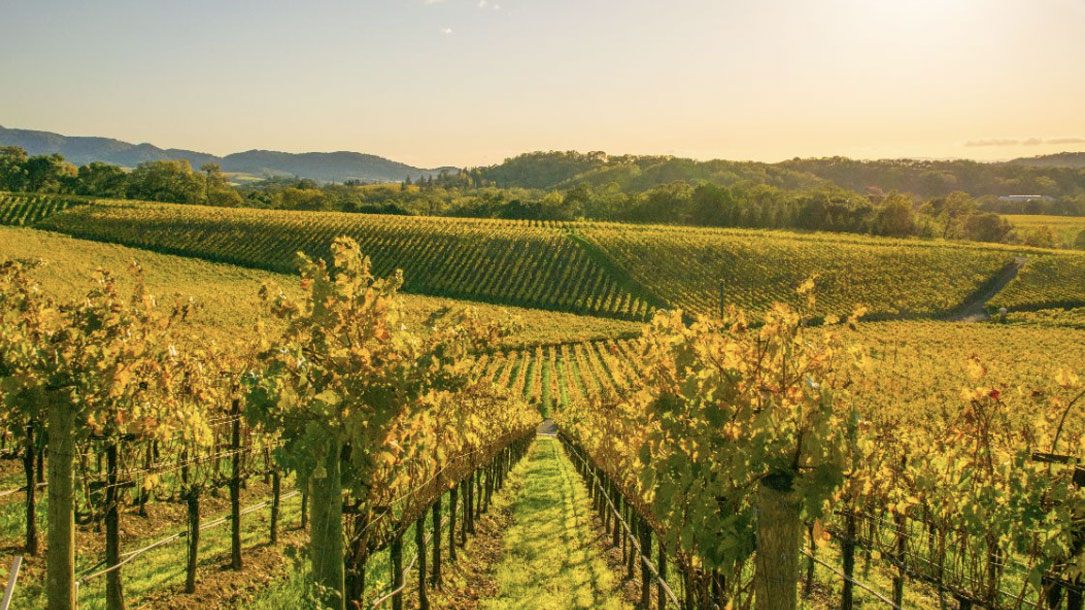
California conservation to address climate change
[In 2021] the Trust for Public Land and JPMorgan Chase announced a $500,000 collaboration to launch The Trust for Public Land’s new California Climate Conservation program, and protect natural and working lands, mitigating climate impacts for people in the Central Coast and Los Angeles County. The program will incorporate California’s climate action strategy and help achieve greater community resilience through nature-based solutions and by engaging with local communities…
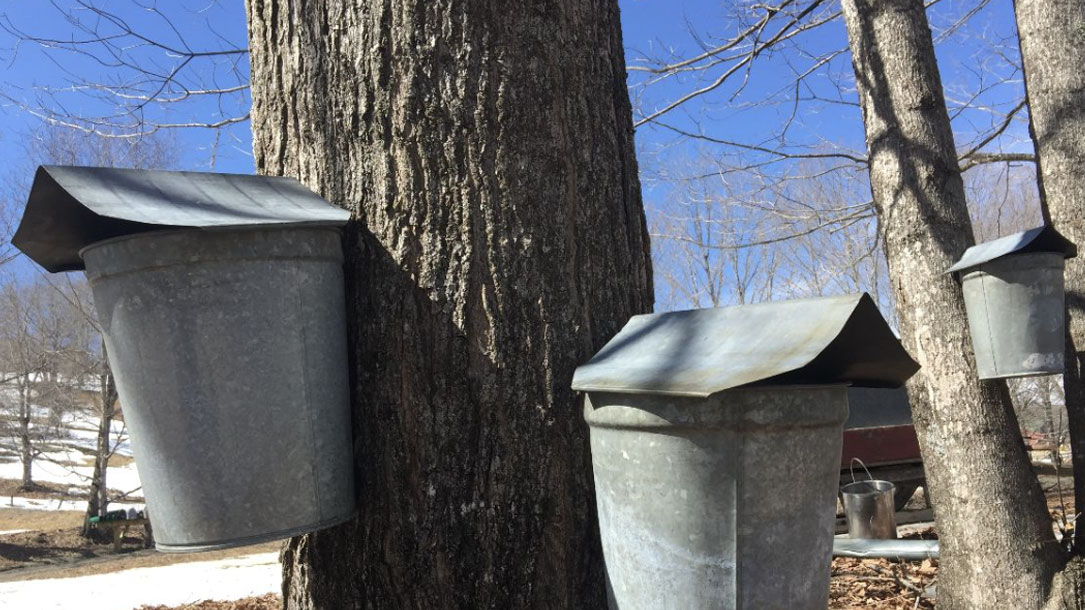
Sequestering carbon while making breakfast sweeter
Vermont’s private forests play a key role in mitigating climate change — they store four times as much carbon as the state’s vehicles release each year. Selling forest carbon credits to companies and individuals working to reduce their carbon footprints provides a new source of income for individual landowners like Jessica Boone and Everett McGinley in Vermont’s Cold Hollows region, which helps them protect their forests. Unfortunately, carbon markets can be too costly for most owners of small forest parcels to join.
That’s why the Vermont Land Trust formed Vermont Forest Carbon LLC and teamed up with The Nature Conservancy, the Caron Dynamics Lab at the University of Vermont, and Cold Hollow to Canada, a local land stewardship and conservation organization, helping landowners overcome the cost barrier by working together as a single carbon project.
This is the first large-scale aggregated forest carbon project in the country, with fifteen neighbors teaming up to sell carbon credits from their land…
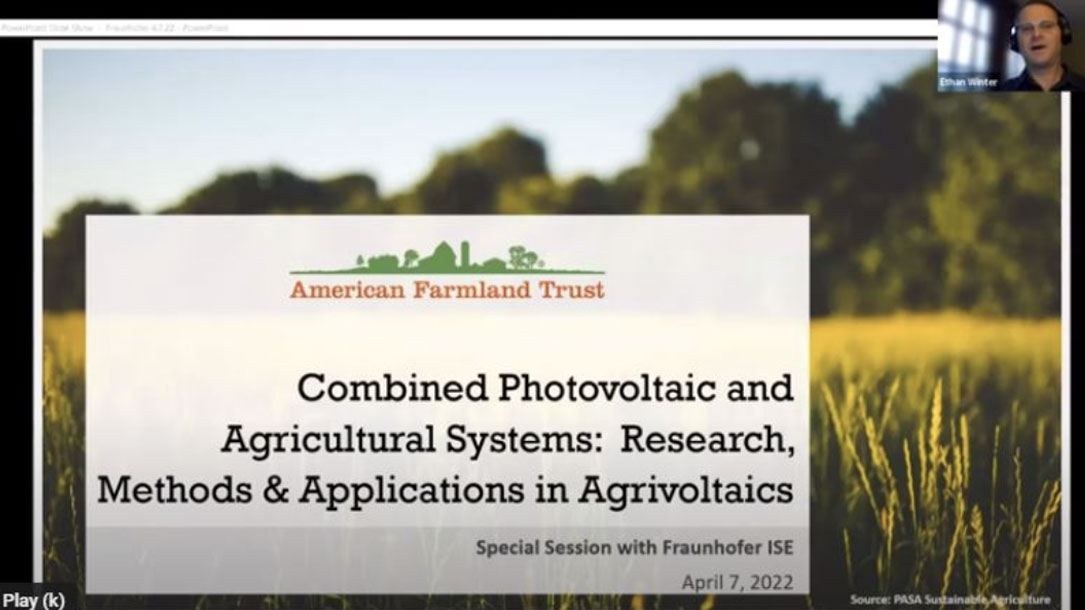
Solar that supports farmers, soils, water
While states and communities around the U.S. are ramping up renewable energy commitments and incentivizing solar development, many farms are struggling. There is also growing concern that solar development could displace active agricultural use on productive farmland, with impacts to farm renters, local economies, and regional food systems. Without an integrated approach, achieving clean energy goals may come at the loss of some of our most fertile and economically viable farmland to solar development.
American Farmland Trust seeks a more collaborative and sustainable path forward towards a clean energy transition that supports healthy soils, wholesome food, and vibrant farms…












